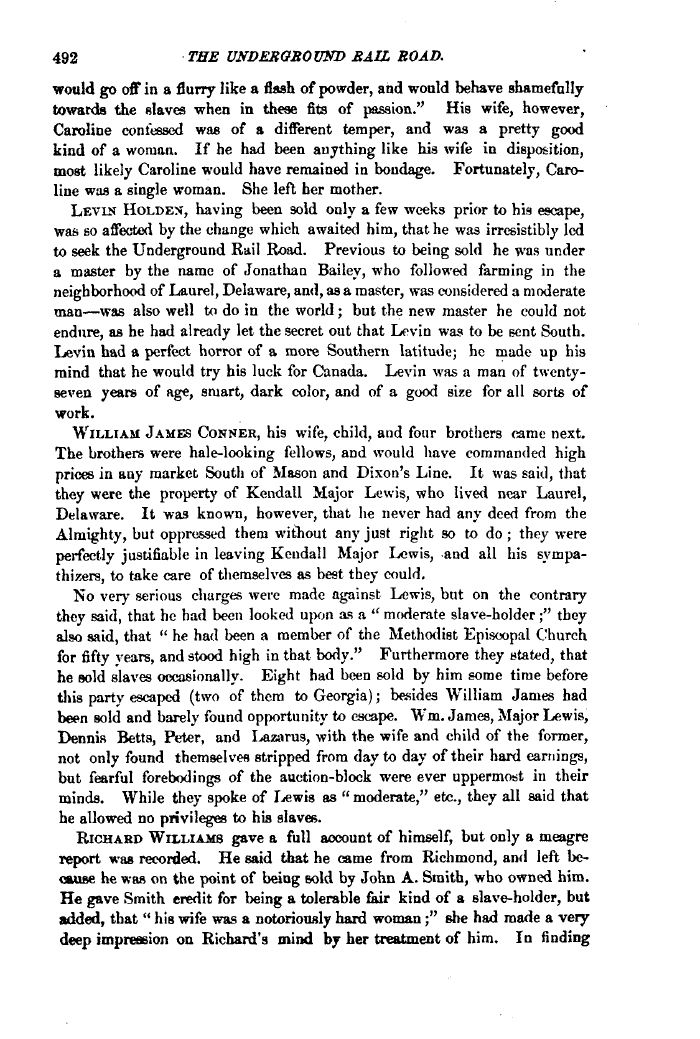 |
||||
 |
||||
| 492 THE UNDERGROUND BAIL ROAD. would go off in a flurry like a flash of powder, and would behave shamefully towards the slaves when in these fits of passion." His wife, however, Caroline confessed was of a different temper, and was a pretty good kind of a woman. If he had been anything like his wife in disposition, most likely Caroline would have remained in bondage. Fortunately, Caroline was a single woman. She left her mother. LEVIN HOLDEN, having been sold only a few weeks prior to his escape, was so affected by the change which awaited him, that he was irresistibly led to seek the Underground Rail Road. Previous to being sold he was under a master by the name of Jonathan Bailey, who followed farming in the neighborhood of Laurel, Delaware, and, as a roaster, was considered a moderate man—was also well to do in the world; but the new master he could not endure, as he had already let the secret out that Levin was to be ecnt South. Levin had a perfect horror of a more Southern latitude; he made up his mind that he would try his luck for Canada. Levin was a man of twenty-seven years of age, smart, dark color, and of a good size for all sorts of work. WILLIAM JAMES CONNER, his wife, child, and four brothers came next. The brothers were hale-looking fellows, and would have commanded high prices in any market South of Mason and Dixon's Line. It was said, that they were the property of Kendall Major Lewis, who lived near Laurel, Delaware. It was known, however, that lie never had any deed from the Almighty, but oppressed them without any just right so to do ; they were perfectly justifiable in leaving Kendall Major Lewis, -and all his sympathizers, to take care of themselves as best they could. No very serious charges were made against Lewis, but on the contrary they said, that he had been looked upon as a " moderate slave-holder;" they also said, that " he had been a member of the Methodist Episcopal Church for fifty years, and stood high in that body." Furthermore they stated, that he sold slaves occasionally. Eight had been sold by him some time before this party escaped (two of them to Georgia); besides William James had been sold and barely found opportunity to escape. Wm. James, Major Lewis, Dennis Betta, Peter, and I>azaru3, with the wife and child of the former, not only found themselves stripped from day to day of their hard earnings, but fearful forebodings of the auction-block were ever uppermost in their minds. While they spoke of Lewis as " moderate," etc., they all said that he allowed no privileges to his slaves. RICHARD WHLIAMS gave a full account of himself, but only a meagre report was recorded. He said that he came from Richmond, and left because he was on the point of being sold by John A. Smith, who owned him. He gave Smith credit for being a tolerable fair kind of a slave-holder, but added, that " his •wife was a notoriously hard woman;" she had made a very-deep impression on Richard's mind by her treatment of him. In finding |